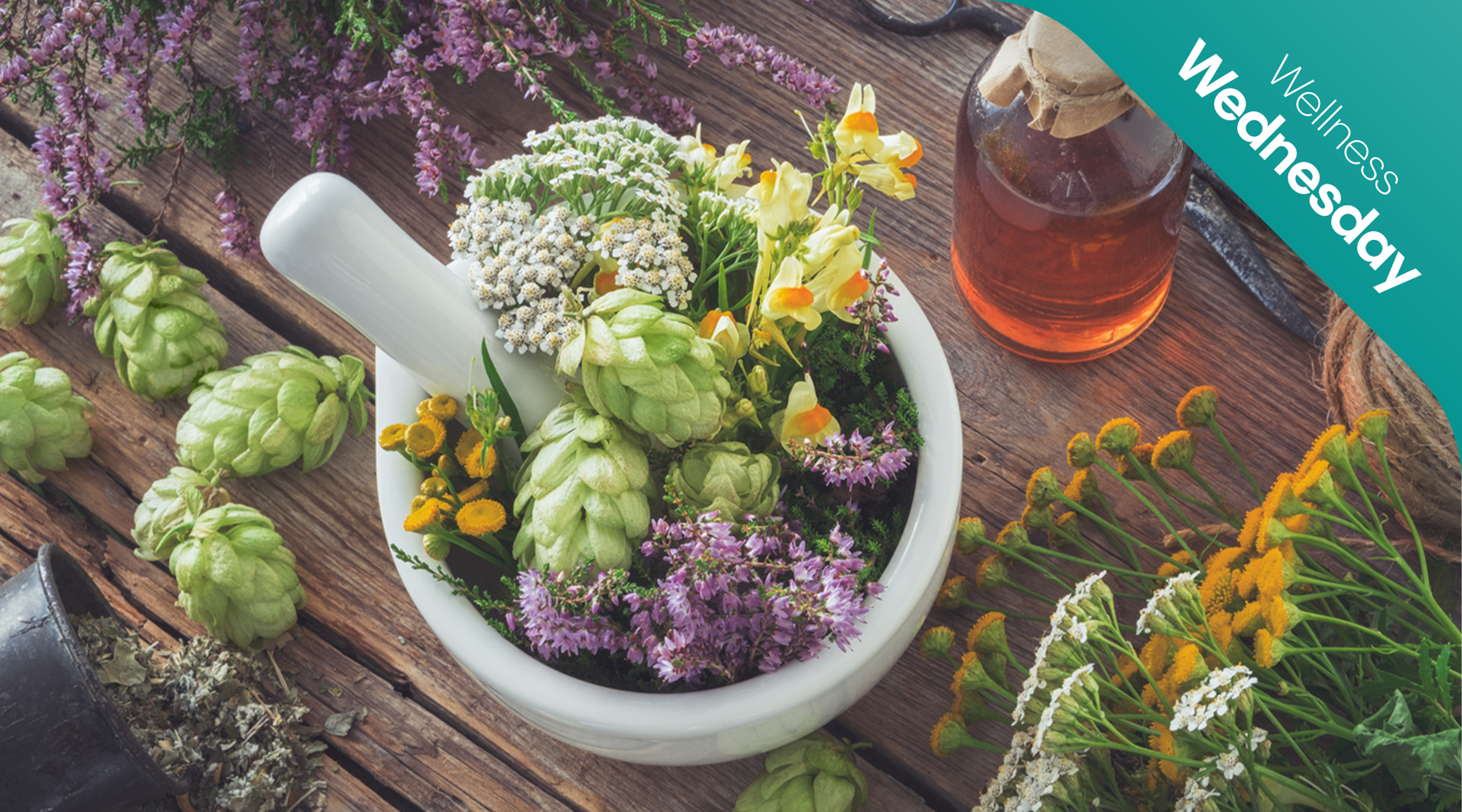Natural and holistic pain management techniques
7 min read
Emily Ledger
Pain is the most common reason for medical intervention worldwide. While many of us will have a stash of over-the-counter painkillers in our medicine cupboard, these are not always sufficient for relieving our pain. But with the undesirable side effects of stronger pain medications, more people than ever are looking for natural pain relief. So, what are some of the best natural and holistic pain management techniques that really work?
Contents
Sometimes, pain is a necessary evil that alerts us to other problems in our bodies, such as sprains, muscle tears, and infections; however, at other times, pain can persist for days, weeks, and even months, with no obvious cause. Pain is a broad spectrum that can range from small cuts and occasional headaches to consistent and more disruptive symptoms. However, pain is commonly separated into two main categories: acute and chronic.
Acute pain is defined as pain that is a normal response to trauma, including injury, surgery, or other medical conditions. Onset is usually sudden and short-lived.
In contrast, chronic pain is more persistent. It can be related to both physical and mental trauma and in some cases, the cause may not be clear. For a diagnosis of chronic pain, symptoms usually must have persisted for at least three months.
What are the most common methods of pain relief?
Pain relief methods can vary depending on the cause and severity of pain; however, in many cases, pharmacological interventions will be recommended to ease symptoms. These can include:
- Non-opioid painkillers (including over-the-counter painkillers, non-steroidal anti-inflammatory drugs (NSAIDs), and antidepressants)
- Opioid painkillers (including oxycodone, morphine, tramadol, codeine and fentanyl)
- Adjuvant/co-analgesics (used in the treatment of medical conditions where pain is a secondary indication)
- Corticosteroids (also called glucocorticoids or steroids)
Many of these common pharmacological interventions are associated with serious side effects. For example, opioids, which have been increasingly prescribed for pain in recent years, carry a significant risk of addiction and overdose. As a result, many patients and clinicians are pursuing alternative treatments for pain management. Other methods for pain relief may include physical therapy and cognitive behavioural therapy.
What is natural pain relief?
In recent years, a growing number of patients living with chronic pain have been on the lookout for natural chronic pain relief techniques. But this is far from a new phenomenon. Humans have been using natural herbal pain relief ingredients for thousands of years, many of which are still a staple in traditional medicine in many parts of the world to this day. So what exactly do we mean by ‘natural’ pain relief?
What are natural pain relievers?
Put simply, natural remedies for pain include non-pharmacological interventions that could have an analgesic or anti-inflammatory effect. This could include natural pain relief supplements, herbs, and other holistic techniques. Now, let’s take a closer look at some of the most research-backed methods for the best natural pain relief.
Natural pain relief herbs
Plants have been an incredibly important resource for nutrition, industry, and medicine throughout human history. But as pharmacological medicine advanced, most of us have become completely detached from the therapeutic potential of many plants. Yet, what many people don’t realise is that many of the medicines we use routinely today are actually derived from these natural ingredients.
It is estimated that around 11% of the ‘basic’ and ‘essential’ drugs used today first originated in flowering plants. Take aspirin, for example; this common over-the-counter medicine is extracted from the bark of the willow tree and was used to treat aches and pains by the ancient Egyptians at least 3,500 years ago! In modern pill-form aspirin, this ingredient (salicylic acid) is synthetically produced; however, it is still possible to buy willow twigs, which when chewed, may help to alleviate pain.
Of course, willow bark probably isn’t the easiest ingredient to get hold of; but don’t worry, if you’ve been wondering “What gets rid of pain naturally?” - there are plenty of other herbal pain relievers and natural anti-inflammatory remedies that may help, including:
- True Lavender, or Lavandula angustifolia Mill.: Lavender essential oil has been found to hold important therapeutic potential as an analgesic and anti-inflammatory ingredient.
- Turmeric: Turmeric extract has been found to have analgesic effects, with one study demonstrating that, compared with placebo, turmeric was beneficial in knee osteoarthritic pain and function.
- Ginger: A common store cupboard ingredient, some research indicates that ginger may be as effective as ibuprofen in relieving menstrual pain and the management of post-surgical sequelae.
- Cloves: Clove oil - also called eugenol - is an aromatic oil that has long been used topically to treat pain associated with toothache.
What is the strongest natural pain reliever?
Plants are also the source of some of the strongest painkillers still in use today, including many opioid pharmacotherapies. Opium, heroin, morphine, codeine and oxycodone are all derived from the poppy plant. Opium has been used for thousands of years as a powerful pain reliever; however, like other opioids, it carries a strong risk of addiction and overdose.
Medical cannabis for pain relief
The cannabis plant has been used medicinally for thousands of years for the treatment of a vast range of complaints, including pain. To this day, chronic pain remains the most common reason for medical cannabis use, thanks to the potential analgesic and anti-inflammatory properties of cannabinoids and terpenes found within the plant. Since 2018, it has been legal to prescribe medical cannabis in the UK.
A growing body of clinical research and real-world evidence suggests that cannabis and its derivatives may be useful in relieving chronic pain. Furthermore, cannabis preparations may offer natural joint pain relief as well as other analgesic and anti-inflammatory benefits; however, more research is required to better understand these effects.
Natural pain relief supplements
Nature can also be a source for natural pain relief outside of herbal extracts. In recent years, supplements have become a key part in our health and wellness regimes, from fish oil capsules to vitamin gummy bears - but many of these products may also be beneficial for relieving some kinds of pain and inflammation.
Supplements can make up part of a holistic approach to pain management, whether you are looking for natural remedies for nerve pain relief, back pain relief, or even muscle pain relief. Some common supplements have been found to possess analgesic and anti-inflammatory properties including omega-3 fish oil (beneficial for arthritic pain and inflammation), and magnesium (plays an important role in pain signalling).
How to relieve pain without medicine?
Holistic approaches to pain relief also include a number of techniques outside the world of supplements and medicines. For example, physical and talking therapies are often prescribed in the treatment of chronic pain to complement pharmacological interventions.
Cognitive Behavioural Therapy (CBT) is a kind of talking therapy that aims to help patients manage symptoms by changing the way they think and behave. It is often used to help relieve secondary conditions that commonly co-occur with chronic pain and fibromyalgia, such as anxiety and depression as evidence suggests that these symptoms can make pain worse.
Physical therapy, such as yoga, tai chi, and regular light exercise, has also been found to be beneficial as part of a holistic approach to pain management. Some patients may also benefit from mind-body techniques such as meditation and breathing exercises.
Final thoughts on natural pain relief
Pain can affect us in many different ways, making it difficult to know what approach will be most beneficial. Many patients who experience persistent or chronic pain may wish to reduce or move away from strong prescription painkillers that can negatively impact their well-being. As a result, the search for effective natural and novel approaches to pain relief is becoming increasingly common with many doctors and clinicians also passionate about exploring alternatives to conventional pharmacological medicines.
Share article
Did you like this article?
It is important to seek medical advice before starting any new treatments. The patient advisors at Releaf are available to provide expert advice and support. Alternatively, click here to book a consultation with one of our specialist doctors.
Elevate your wellness with medical cannabis
Get comprehensive care, convenience, and confidence with an all-in-one treatment plan.
Am I eligible?Authors
Emily, an accomplished content writer with a specialisation in cannabis and alternative health, leverages her five years in the sector to enhance education and diminish stigma around medicinal cannabis use.
compliance checked
Compliance Director
Editorial Policy
All of our articles are written by medical cannabis experts, guided by strict sourcing guidelines, and reference peer-reviewed studies and credible academic research. Our expert clinical team and compliance specialists provide valuable insights to ensure accuracy when required. Learn more in our editorial policy.
Need more help?











